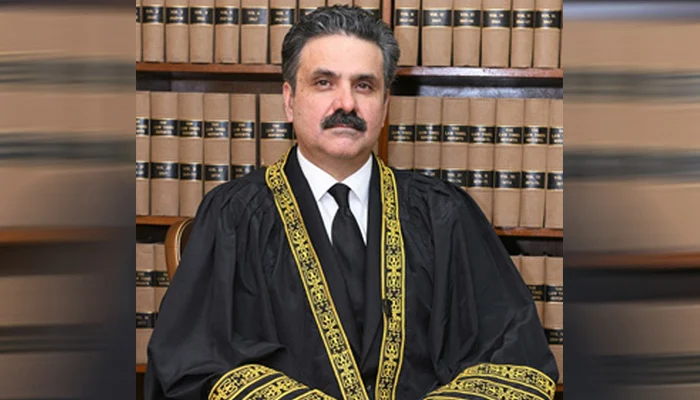ISLAMABAD Justice Yahya Afridi released a supplementary statement on Wednesday evening, hours after the Supreme Court’s comprehensive ruling in the case concerning the legislation limiting the chief justice of Pakistan’s (CJP) authority. Justice Afridi stated that granting the right to appeal can be achieved through constitutional modification.
“With utmost respect for Parliament, I declare that Section 5 of the Act has been enacted by Parliament beyond its ordinary legislative power conferred on it under the Constitution; section 5 of the Act is, therefore, ultra vires the Constitution, and thus of no legal effect,” the justice wrote in a 24-page document.
The aforementioned section gives any aggrieved party against whom an order has been passed under clause (3) of Article 184 of the Constitution before the Act’s commencement the right to appeal, retroactively, against an order passed by a top court bench exercising jurisdiction under that clause. Its sub-section (2) also grants this right to any aggrieved party.
However, Justice Yahya believes that the “right course”—which he defined as “amending the Constitution” to create an appeals process for decisions made by the highest court—must be taken by the Parliament.
“I may mention here that providing a right of appeal against an order passed by this Court in its original jurisdiction is, no doubt, a positive thought to better ensure the requirements of fair trial and due process; but in pursuit of a positive outcome, the law not less than the fundamental and supreme law of the land – the Constitution – cannot be disregarded,” the note continued.
By a vote of 10 to 5, the whole bench of the supreme court, which consists of its 15 judges, proclaimed the SC (Practice and Procedure) Act 2023 to be “constitutional” on October 11.
In its ruling, the supreme court invalidated a portion of the legislation that addressed its retroactive application.
The law was rejected by five members of the bench in their rulings on the pleas contesting it: Justices Ijazul Ahsan, Muneeb Akhtar, Sayyed Mazahir Ali Akbar Naqvi, Ayesha A. Malik, and Shahid Waheed.
Sub-section (2) was approved by a majority of 8-7, with Justices Qazi Faez Isa, Sardar Tariq Masood, Syed Mansoor Ali Shah, Amin-ud-Din Khan, Jamal Khan Mandokhail, Athar Minallah, and Musarrat Hilali disagreeing.







